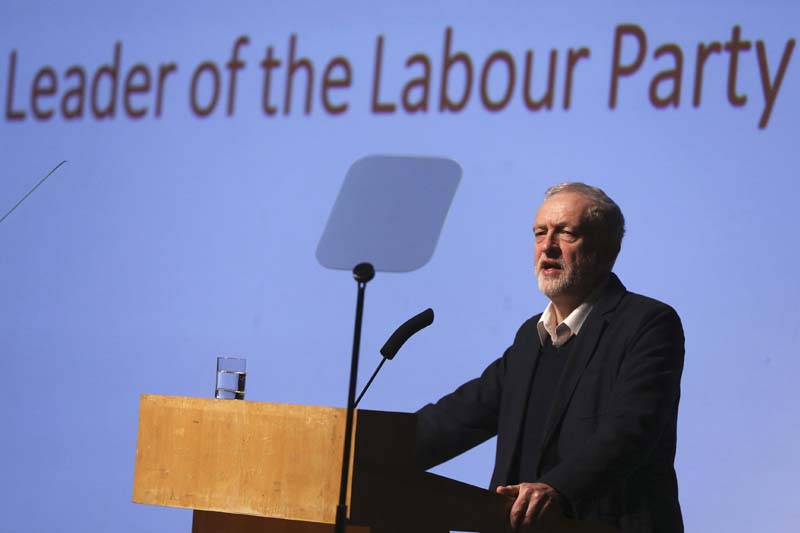Britain's Labour Party gears up for new battle
LONDON: The leader of Britain's main opposition Labour Party says a reshuffle of his top team has brought the unity needed to "win elections and change our country for the better" - but he faces a struggle to convince his own lawmakers.
Some Labour MPs say this month's changes by Jeremy Corbyn have merely deepened divisions and herald the start of a battle over national security that could tear the party apart and leave it out of power for more than a decade.
After days of what some aides said were difficult talks, Corbyn sacked two top-ranking officials for disloyalty and moved his defence spokeswoman to another role, bringing in a lawmaker who shares his opposition to nuclear weapons.
With security now taking centre stage, the reshuffle was seen as the first move in a fight over whether to renew the Trident submarine programme - Britain's sole nuclear weapons system - which a Labour government won parliamentary support for in 2007.
Pat McFadden, who was sacked as Labour's Europe spokesman in the reshuffle, urged Labour members not to focus on his dismissal, which was condemned by several lawmakers, in both Labour and the ruling Conservative Party.
"The longer-term importance from the reshuffle is not whether I'm there ... it is probably the question of Trident and what happens now," McFadden told Reuters in an interview.
"There will certainly be different views about it."
A battle for the soul of Britain's Labour Party seems to have entered a new phase.
Corbyn believes the cost of renewing and maintaining Trident, which Reuters puts at more than 167 billion pounds ($234 billion) over 32 years, is too much and the money could be better spent. But many in his party think Britain cannot unilaterally disarm in an increasingly hostile world.
The veteran left-wing and anti-war activist was elected on a groundswell of desire for change among Labour's grass-root members in September following a heavy election defeat. Since then, his followers in the party, often holding more radical views than their elected representatives in parliament, have clashed with some Labour lawmakers.
After weeks of slurs and accusations in the largely anonymous realm of Twitter, some of the divisive language is now being used in parliament, with lawmakers who resigned their senior party positions in protest at the reshuffle dubbed a "right-wing clique" by one of Corbyn's closest allies.
The two sides seem further apart than ever, and despite Corbyn's attempts to tighten his control over the party, the Trident debate looks set to add fuel to what is becoming an increasingly public, and damaging, battle.






